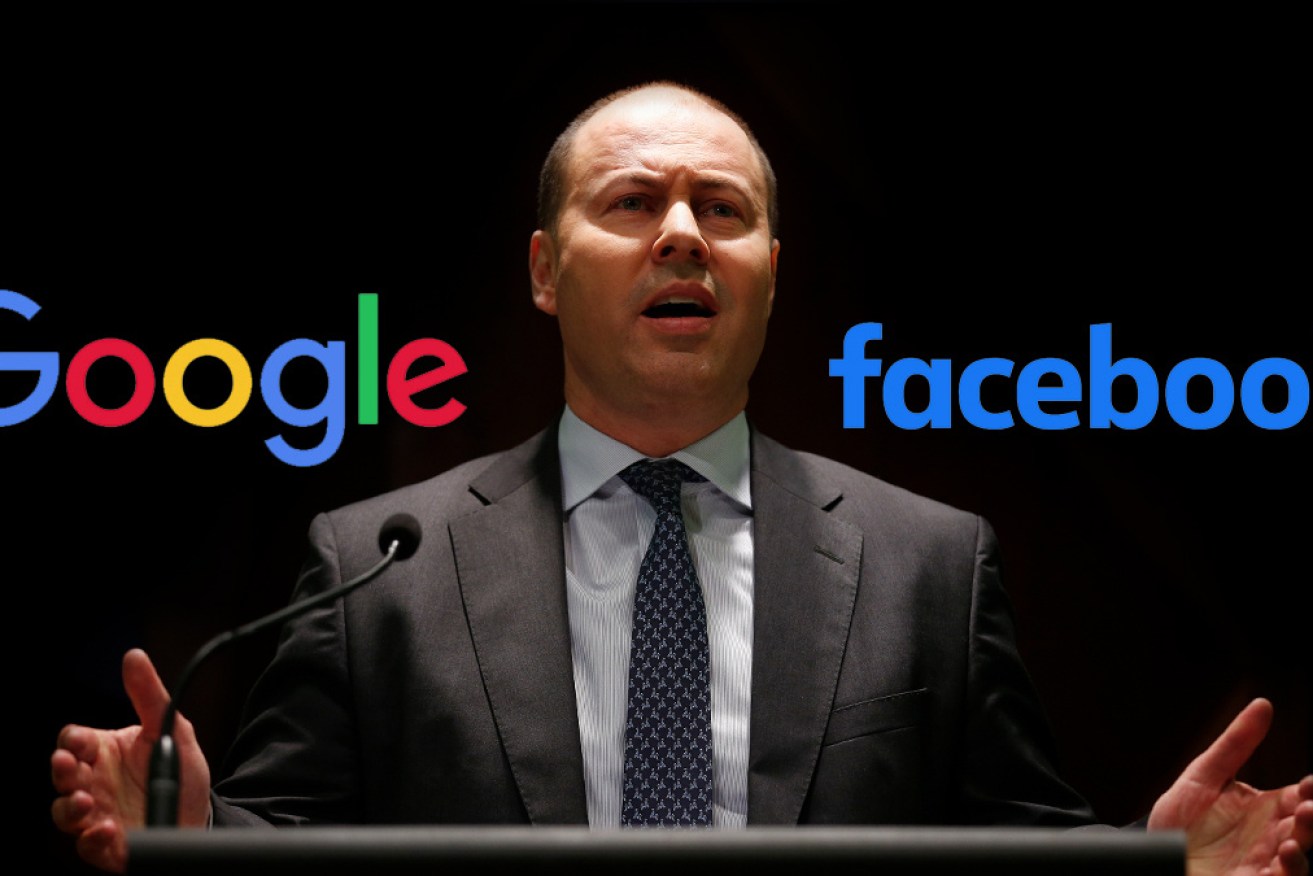Diversity hit between the eyes as old media pockets about 90 per cent of big tech cash

Large digital platforms will be forced to pay news outlets for their content, under a new ACCC code. Photo: The New Daily
With the amendments to the mandatory news bargaining code released this week, Australia has ended up with the worst possible deal – one that strengthens old media and big tech monopolies, particularly their most socially malign elements in News Corp and Facebook.
Old media got what they wanted: Free money, with almost 90 per cent of the cash destined to line the pockets of News Corp, Seven West Media and Nine.
Based on published figures, these three stand to gain about $110 million of the $125 million on offer to private media from Google.
Expect a similar split in the Facebook deals.
This free money will undermine media diversity by subsidising old media and by prioritising their content on the web, making almost uncrossable the gap between their resources and the resources of start-ups.
It threatens to hurry on the death of printed papers.
Big tech has also got what it wanted: No regulatory restraint on its continued deepening data collection or its algorithmic processes, which is how it wields power and makes money.

If Facebook was a metaphor, it would be as happy as a pig in … you know. Photo: Getty
Those who behaved worst in the unusually public politics-as-sausage-making that produced the final deal were, predictably, the squeaky wheels.
While the government’s national sovereignty grandstanding is exposed as so much hollow rhetoric, it’ll be satisfied that it has successfully threaded the needle that keeps both old and new power centres more or less happy.
Treasurer Josh Frydenberg will be particularly pleased that he’s parlayed the process into becoming News Corp’s pick for next PM – maybe sooner than later. “Epic negotiation”, “irrepressible”, according to Paul Kelly in The Australian.
Even that usually weak-kneed regulator, the Australian Competition and Consumer Commission – that stood aside over four decades as Australia’s news media degraded to the News/Seven-Nine duopoly – gets to be seen to act tough.

Mr Frydenberg has some front pages to frame. Photo: AAP
Although old media have been happy to use their front pages to boost their campaign against the tech platforms, they’ve been surprisingly reticent about the final “commercial-in-confidence” arrangements.
Both sides win from exaggeration: It equally boosts old media’s claimed value and big tech’s “we’re a public good” brag.
Both sides are eager to spin how well they’ve done, usually by conflating cash transfers with in-kind arrangements.
Based on what’s been reported, the Google deals with private media look like totalling about $125 million (as Crikey suggested two weeks ago) with the ABC to come.
That’s about 2.5 per cent of its most recently reported Australian revenues – chump change for the search giant – and less than the 3 per cent digital transaction tax it’s up for in France.
News media have reported that the Seven West Media and Nine deals are worth about $30 million, although it seems the Nine deal is narrower and involves more cash and less in-kind arrangements.
The News deal is thought to be about $50 million.
Tweet from @TurnbullMalcolm
In other words, about 90 per cent of the benefit will end up with the News/Seven West and Nine duopoly.
No wonder Labor and the Greens are voting for the code under Australia’s oldest political rule of thumb: Never get between media corporations and a bucket of money.
The next biggest winner is Guardian Australia, also an active supporter of the code.
Although it hasn’t reported its figures so far (unlike the Nine mastheads with their deal) it’s thought to be somewhere between $5 and $10 million. As a not-for-profit, it’s the only one that can be relied on to spend it on journalism.
This means that about half the Google money will end up with foreign-owned media.
Tweet from @jeffjarvis
Expect the Facebook deals to be similar, based on its smaller (about $1 billion) Australian revenues.
This free money is not enough to hurt the increasing revenues of the big tech platforms.
And it’s probably just enough for old media to put off hard decisions as it compensates for the revenue declines it would expect in the next year or so.
But it’s enough to hurt journalism by undermining media diversity and access.
The core of the deal is Google and Facebook publishing stories in the platform webs’ equivalent of vanity publishing: News Showcase for Google and the News tab for Facebook.
The worst part of the deal is that it sets up the platforms to do special deals to prioritise content from individual publishers.
Based on form, expect that sort of dealing to involve the key big tech and old media players in the outrage economy – Facebook and News Corp.
That’s good news for, say, Sky after dark’s social distribution strategy. It’s good for the right-wing voices both Facebook and News Corp amplify.
It’s the worst news for just about everyone else.
This article was first published on Crikey and has been reproduced with permission








